Caboolture Aerodrome on McNaught Rd, at Map 428 F2, is honoured to hold the presitigious TAVAS flying display. TAVAS stands for “The Australian Vintage Aviation Society”
The 2017 event, part sponsored by Pocket Books, was on Saturday 22nd
April and Sunday 23rd April. The airshow was accompanied by a display
of vintage vehicles.
This Pocket Book’s front cover shows:
Gustave Whitehead’s first plane. Flyover. Tri-wings and Bi-wings. Crowd & clouds.
The rare and Vintage, both flying or on display, included some 30
aircraft:
PRE WORLD WAR 1
1901 Whitehead No.21 (static), 1909 Johnson Monoplane*, 1909
Demoiselle
WORLD WAR 1
Fokker E.III Eindecker, Sopwith Triplane, Nieuport 17, SE5a, Fokker
Dr.I Triplane, Bristol F2b Fighter, Fokker DVII* and Fokker D.VIII.
This is the ONLY collection of flying WW1 type aircraft in Australia!
BETWEEN THE WARS
Hawker Demon*
OTHER VINTAGE AIRCRAFT
1929 Fleet, C-140, C-195, 1928-designed Pietenpol Aircamper, DH
Drover*
WORLD WAR 2
Bristol Beaufort*, Wirraway, SNJ
KOREAN WAR
Australian-built P-51D Mustang (CA-18)
VIETNAM WAR
Mig 17 jet fighter (static), DHC-4 Caribou (static)
OTHER TYPES
(Used by various military forces)
DH Devon, DH Tiger Moth, Auster, Yak 52, T-34 Mentor, T-28 Trojan,
DHC-1 Chipmunk
*Denotes aircraft not yet flying, still under
restoration/construction.
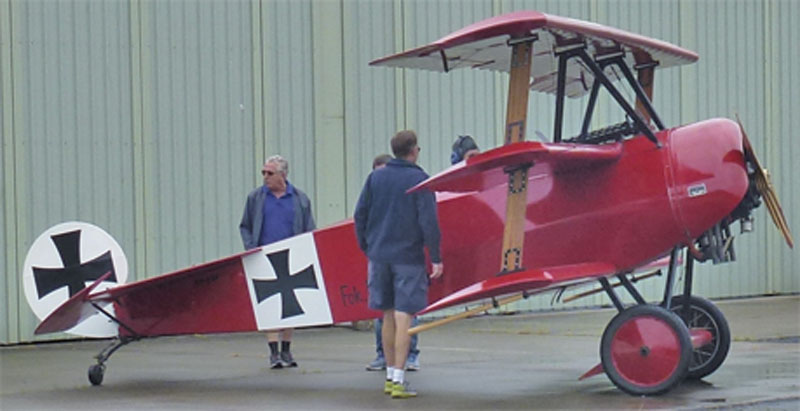
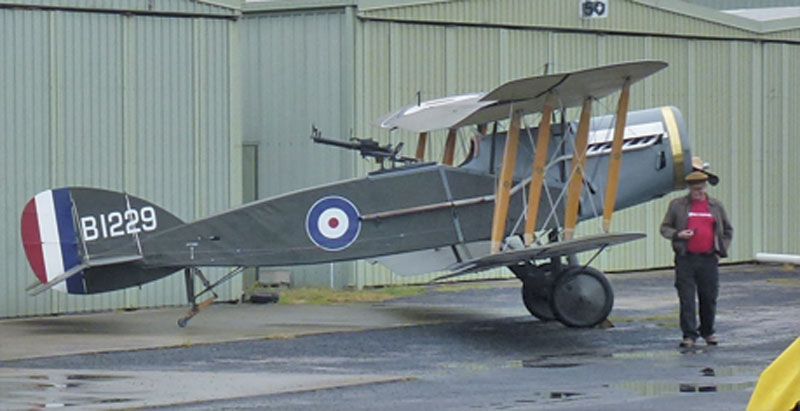
Tri-wings and bi-wings from the first world war. The Caboolture TAVAS
has restored these flyings to flying condition.
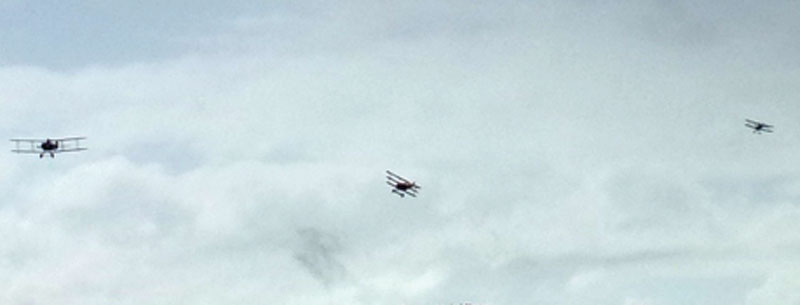
Here
they are: flying!
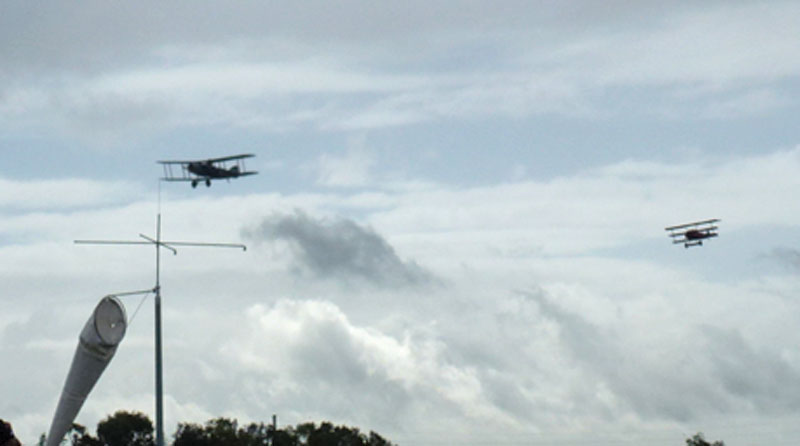
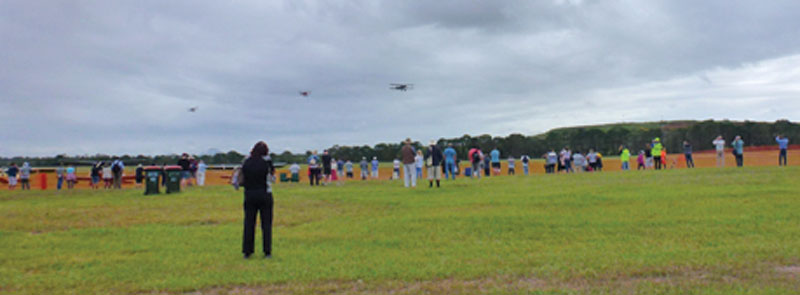
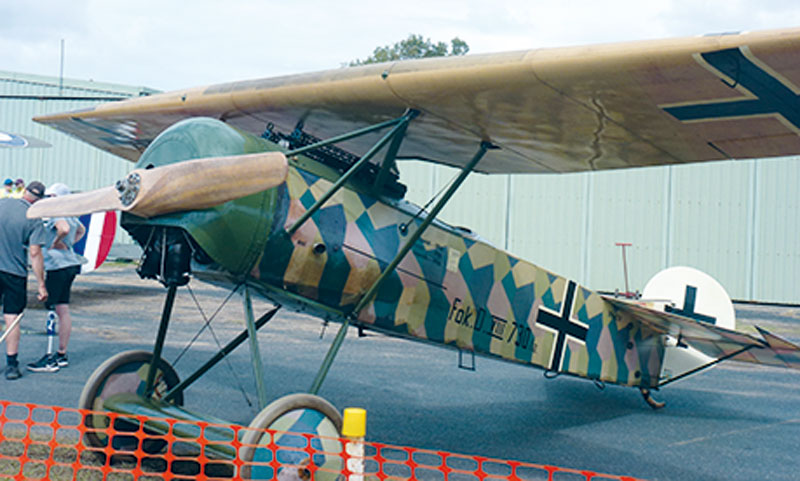
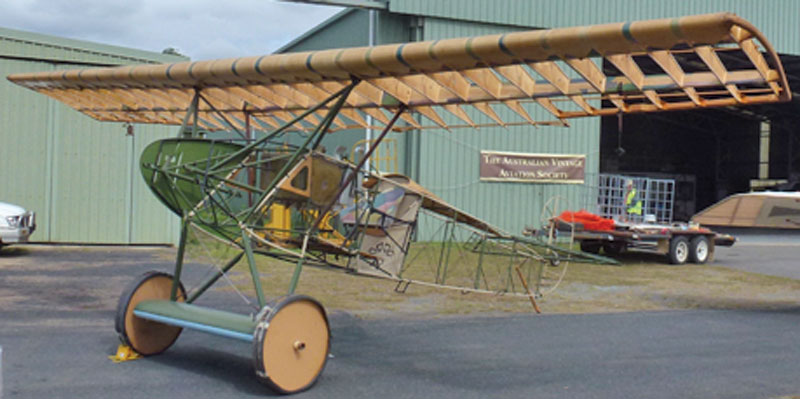
Fokker
D.V11
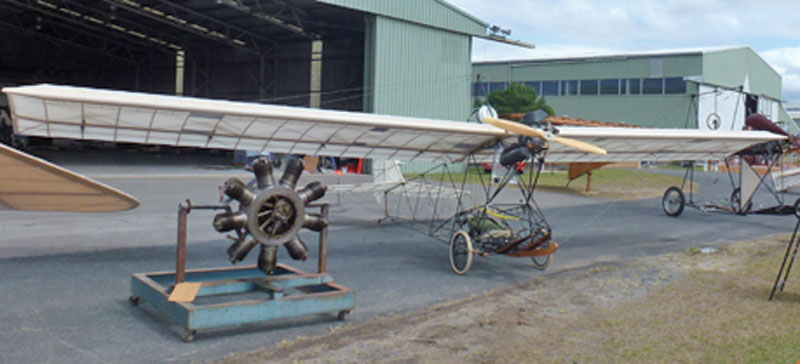
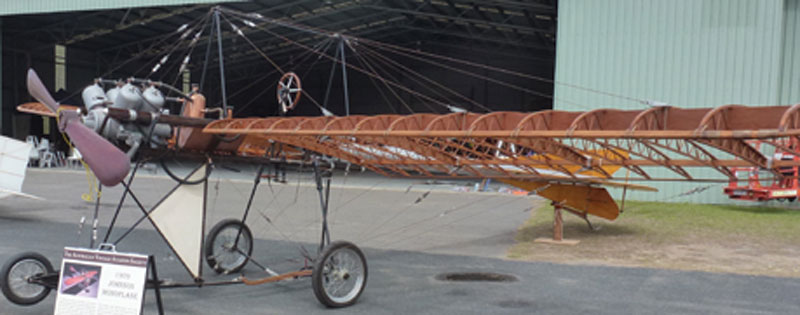
The
1909 Johnson Monoplane.
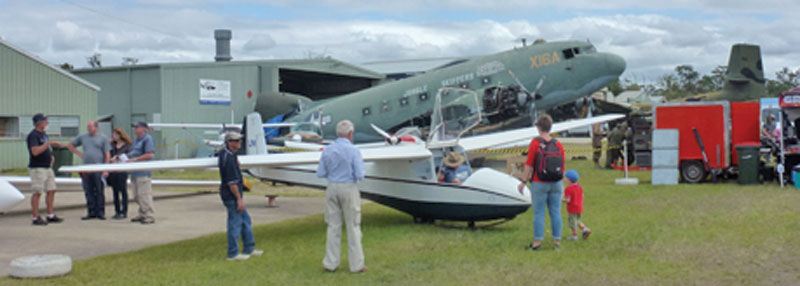
A
modern glider at Caboolture , and an old war workhorse.
The First Powered Flight.
Gustave Albin Weisskopf (1874-1927) migrated from Germany to the USA
where he changed his surname to Whitehead. In Connecticut he designed
and built gliders, engines and aircraft between 1897 and 1915, with
his Condor 21, in 1901, being the first successfully flying
heavier-than-air aeroplane, a good two years before the Wright
Brothers.
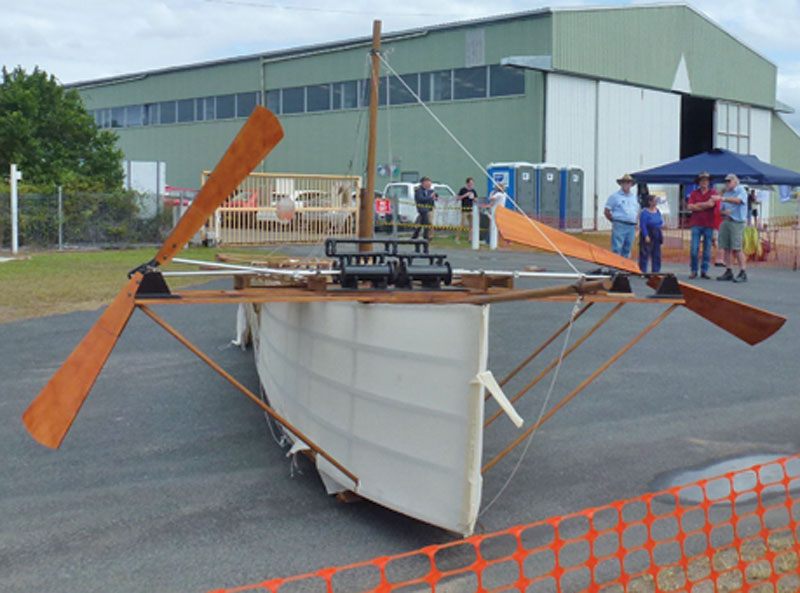
A
replica Weisskopf Condor.
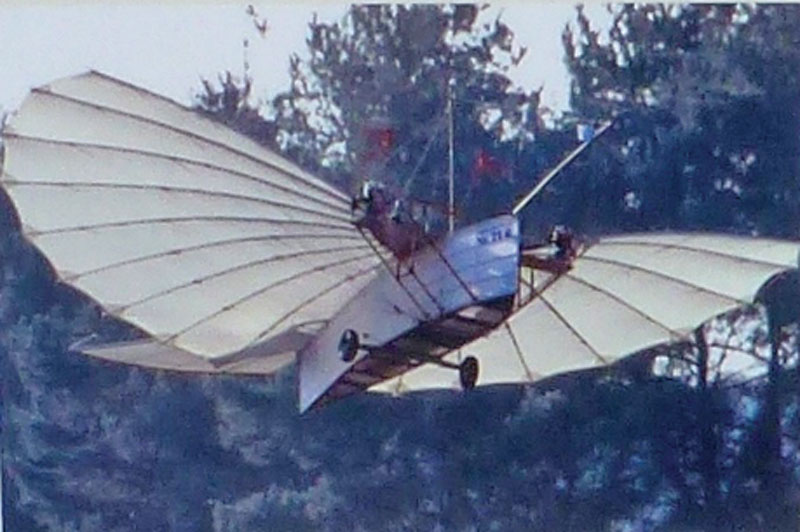 With a sailwing, and a small motor on the rear wheel, Gustave ‘s 91 kg
Condor plane could be road driven to the airfield, making it the first
flying-car, as well as the first heavier-than-air aircraft. (Zeppelins
and balloons are ‘lighter-than-air’ aircraft.)
With a sailwing, and a small motor on the rear wheel, Gustave ‘s 91 kg
Condor plane could be road driven to the airfield, making it the first
flying-car, as well as the first heavier-than-air aircraft. (Zeppelins
and balloons are ‘lighter-than-air’ aircraft.)
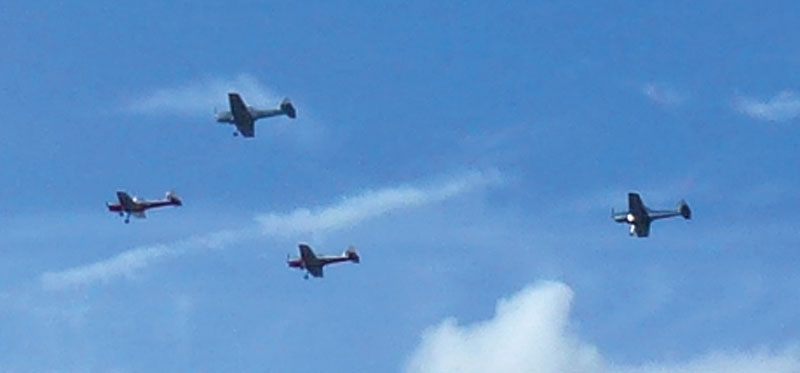
Flyover
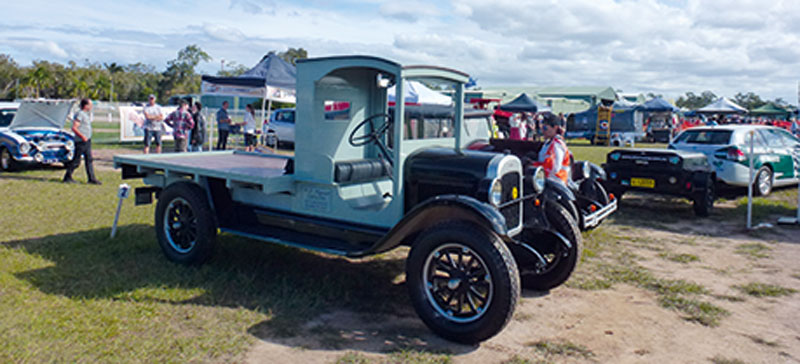
Some
of the vintage vehicle display. 1925 Chevy Ute, then called a Utility.
With timber cabin.
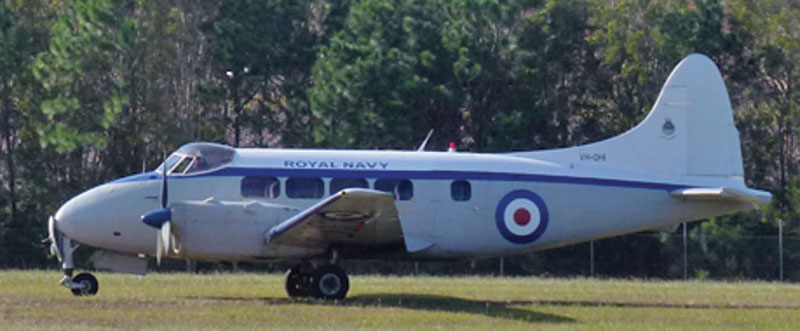
The
Royal Navy
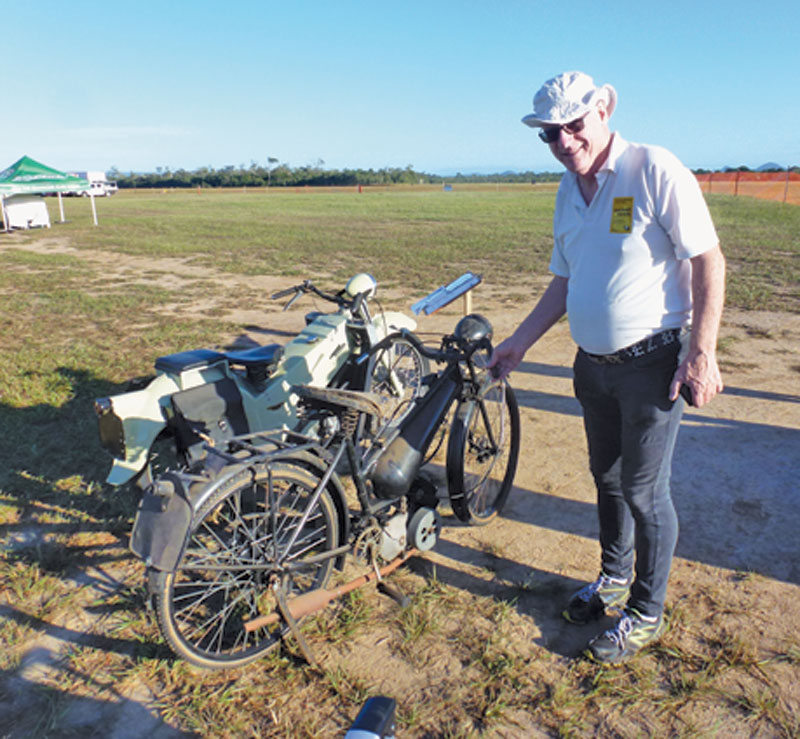
Gerry
Clarke of Pocket Books with the vintage bikes.
Gerry used to ride motor bikes, and fly hang-gliders:
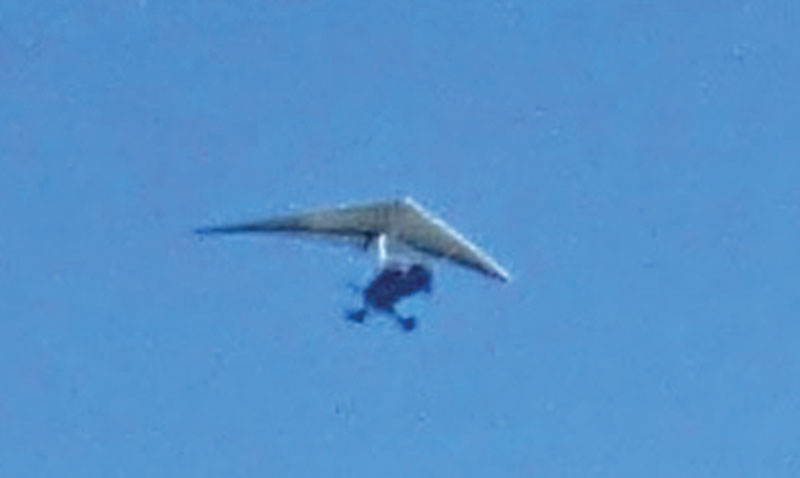
A
visitor to the airshow arrived in style on his motorised hang-glider.
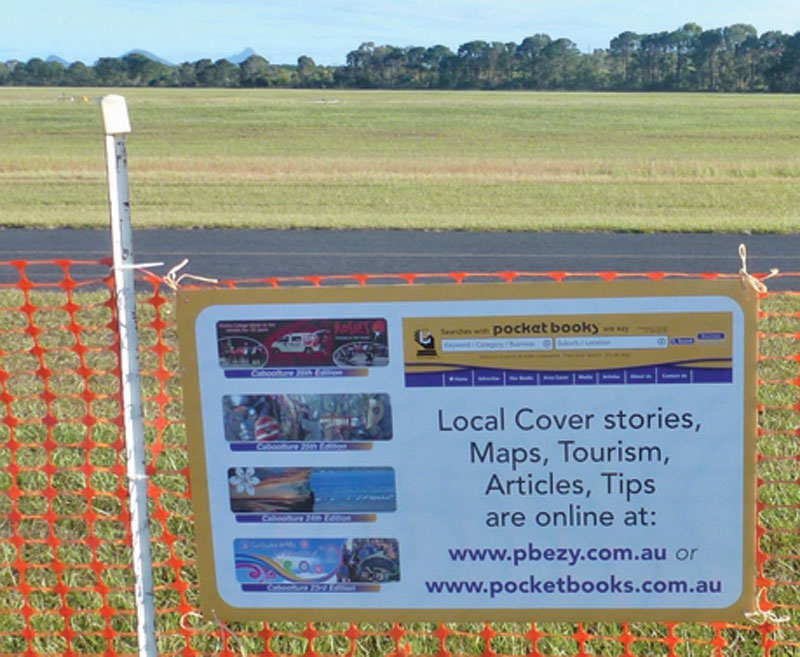
As
part of our sponsorship, Pocket books included front cover photos from
recent Caboolture Pocket Books as published online.
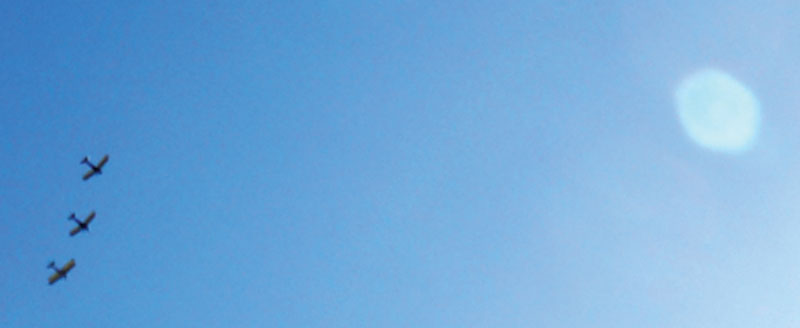
Not
quite Icarus flying too close to the sun!
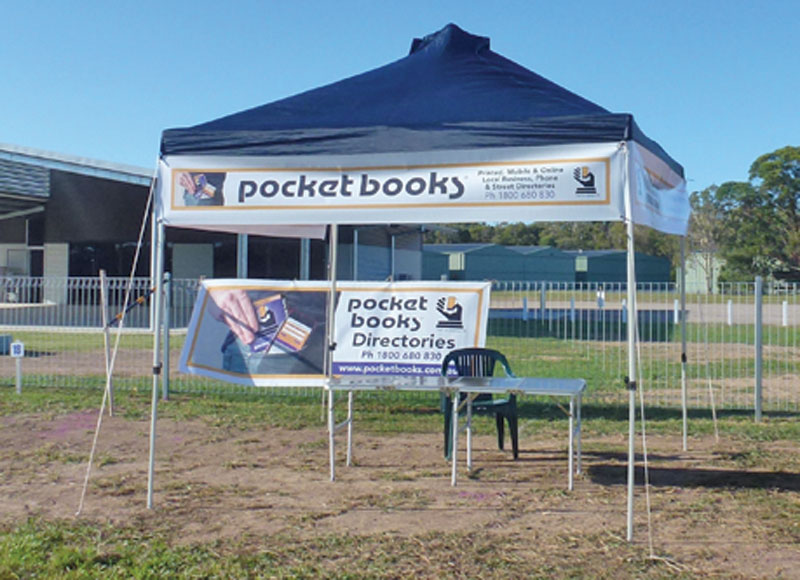
The
Pocket Books stand preparation.
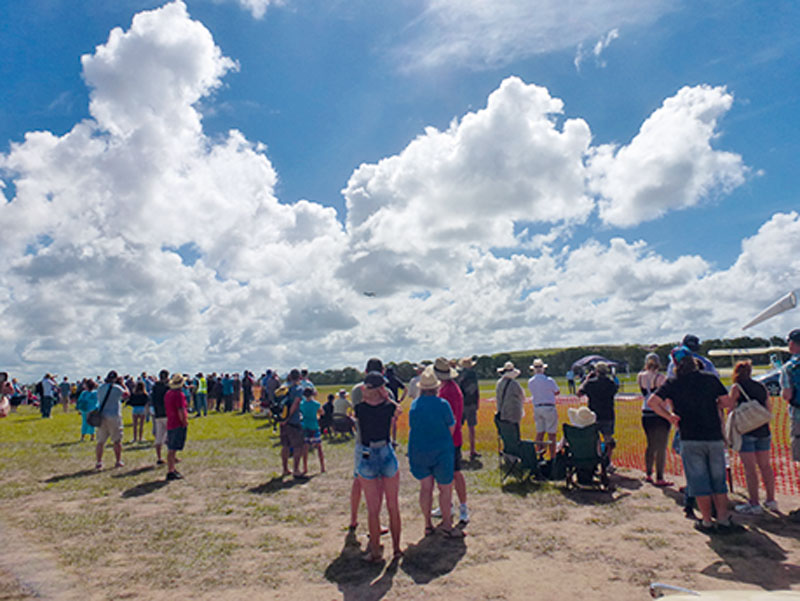
Crowds
at the show with a magnificent cloud array which did ‘not quite rain
on our parade’ of planes.
A flock of birds looking at this intruder on their space.
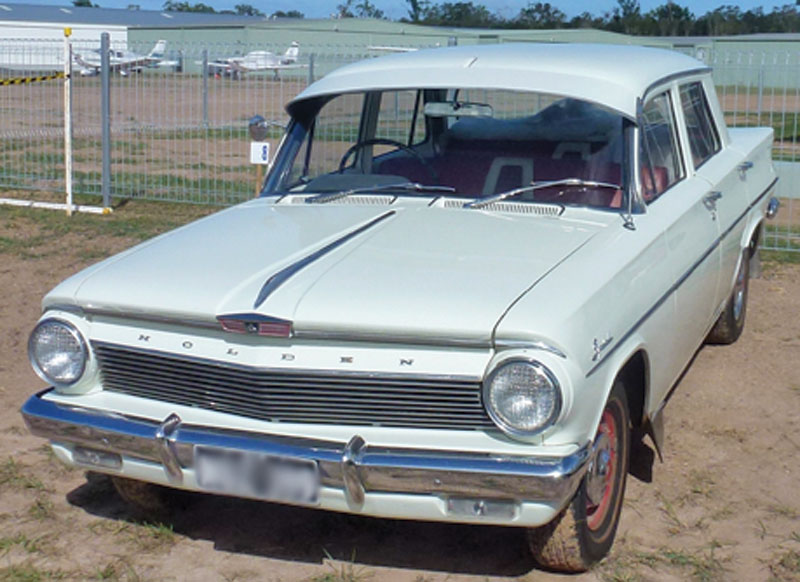
A
1964 Australian Holden, with comfort for driver and five passengers.
When I was about 13, my parents drove two of these from Melbourne to
Miami (later the Gold Coast) for a Christmas holiday for our family of
ten boys. The desire for an eventual move to Qld had been born.
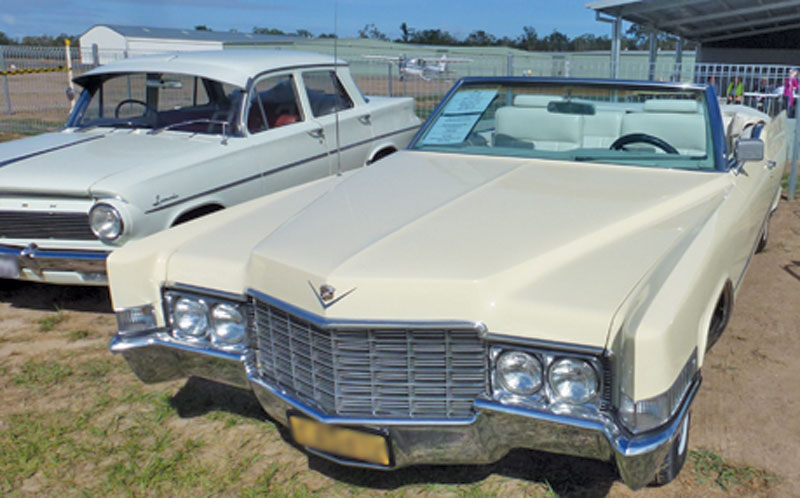
The
Holden’s American cousin of the same period, the Cadilac,
ostentatiously carried four people “in style�. Both are superbly
renovated by their owners.
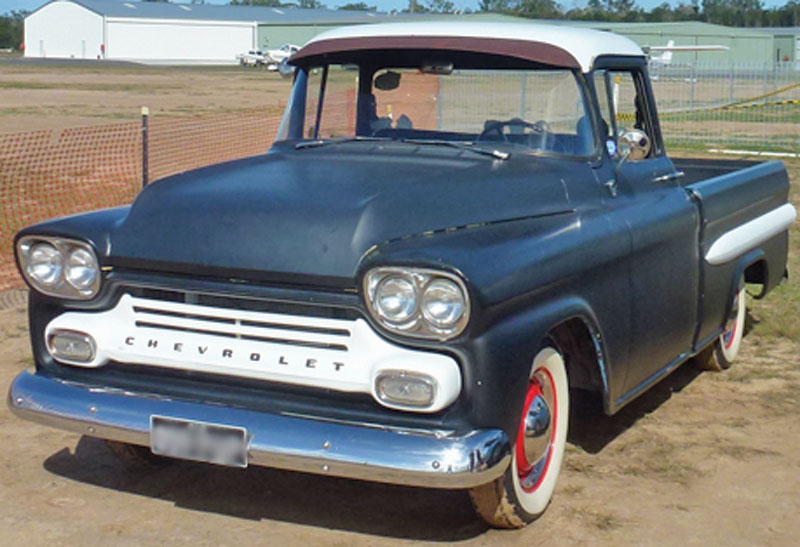
A
1959 Chevrolet “pick-up�. We don’t need a hyphenated two words to
describe our Australian utility; although we even abbreviate this to
“ute�.
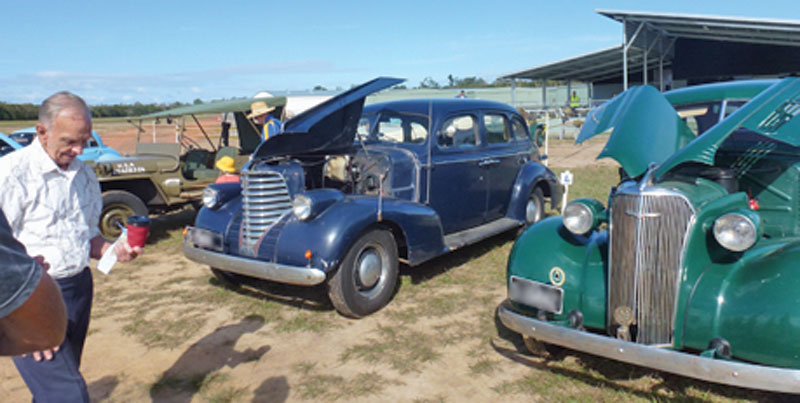
This
was a fun day at the airfield. While we often remember the names of
the pilots, rarely do we see the names of the engineers who designed
these flying machines, nor the engineers for the next flying
generation - the space rockets.
Gerry Clarke, B.PED.
Pocket Books
(07) 5438 1881.











 With a sailwing, and a small motor on the rear wheel, Gustave ‘s 91 kg
Condor plane could be road driven to the airfield, making it the first
flying-car, as well as the first heavier-than-air aircraft. (Zeppelins
and balloons are ‘lighter-than-air’ aircraft.)
With a sailwing, and a small motor on the rear wheel, Gustave ‘s 91 kg
Condor plane could be road driven to the airfield, making it the first
flying-car, as well as the first heavier-than-air aircraft. (Zeppelins
and balloons are ‘lighter-than-air’ aircraft.)












